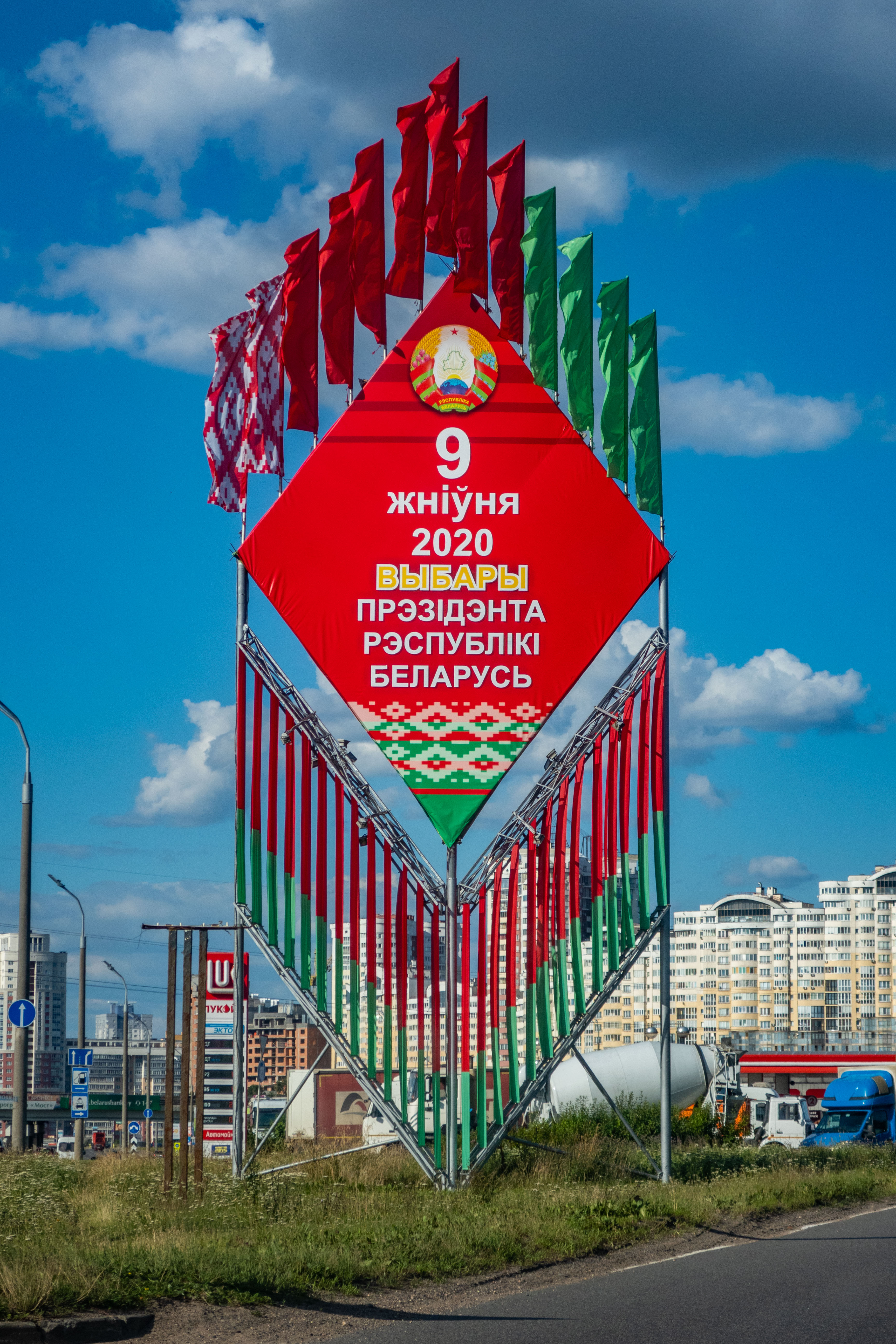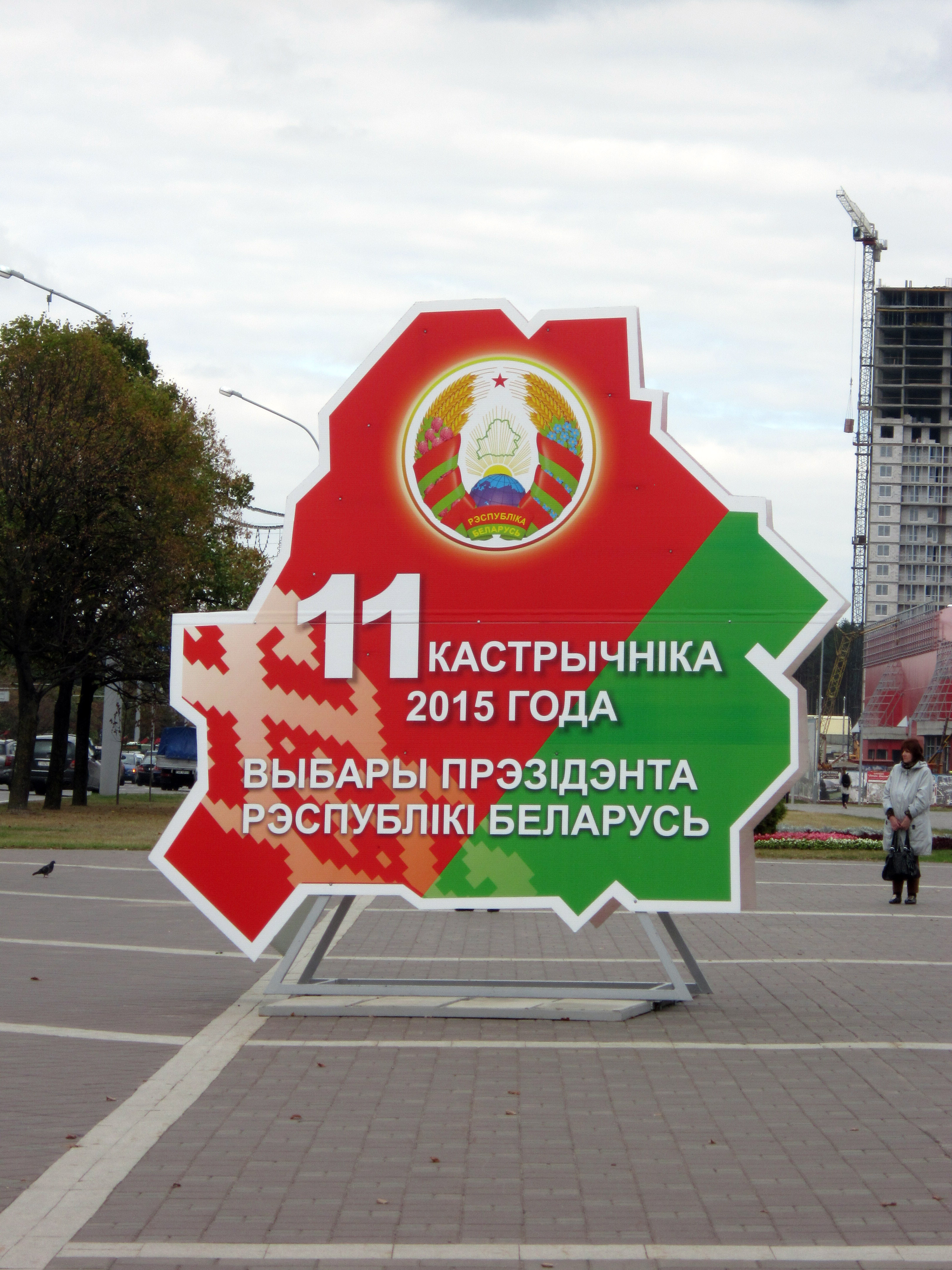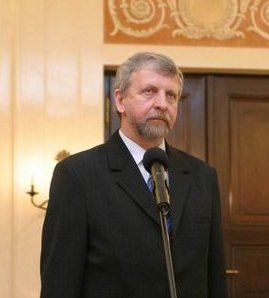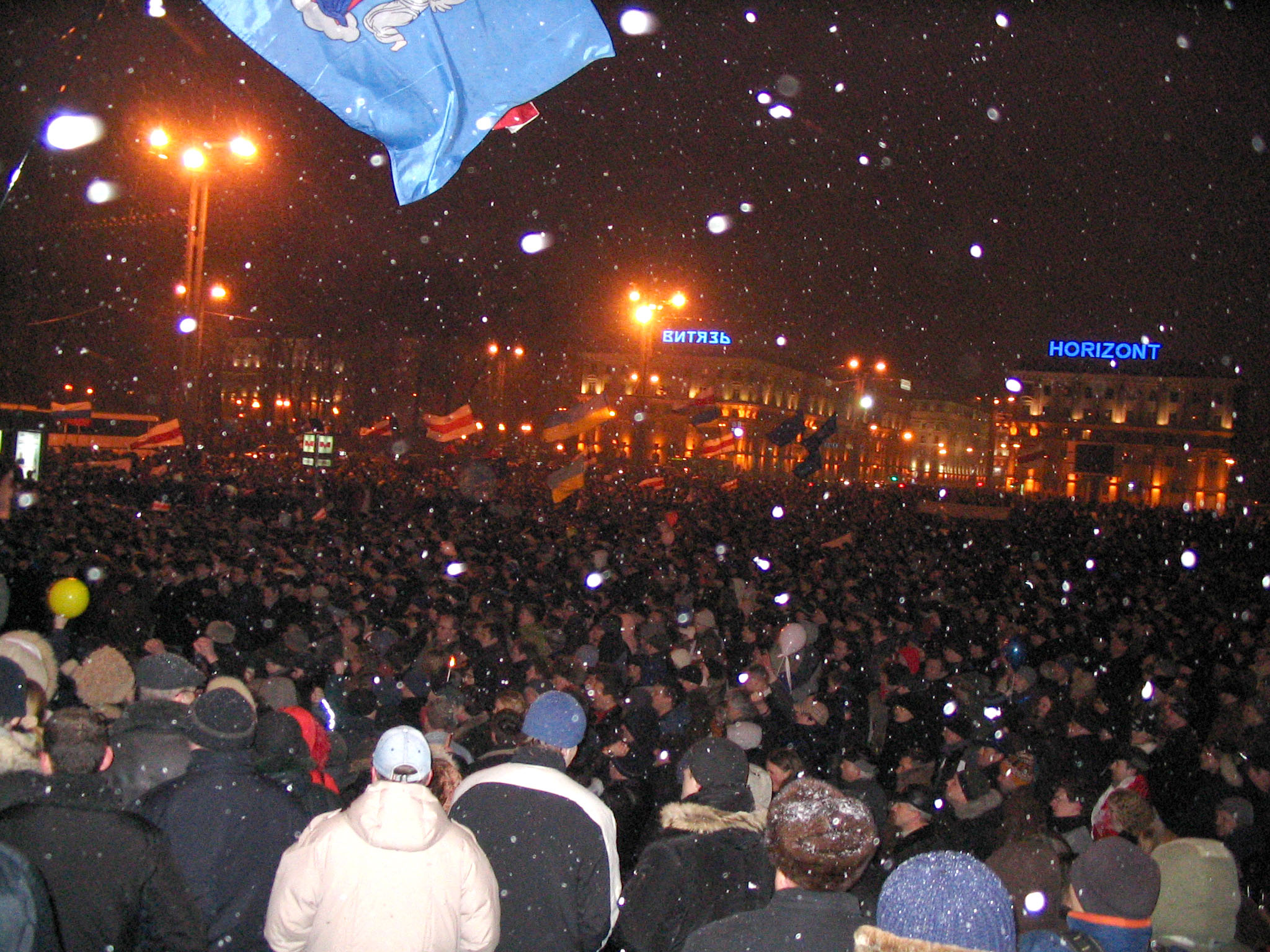|
Belarusian Social Democratic Assembly
The Belarusian Social Democratic Assembly (BSDH; be, Беларуская сацыял-дэмакратычная Грамада; БСДГ, Bielaruskaja sacyjal-demakratyčnaja Hramada; russian: Белорусская социал-демократическая Грамада; БСДГ, Belorusskaya sotsial-demokraticheskaya Gramada; BSDG), commonly shortened to "Hramada" or "The Assembly", is a Belarusian social-democratic political party. Businessman Siarhiej Čeračań has been the leader of the party since October 2018. Leadership The previous head of the party from 1998 to 2018 was Stanislav Shushkevich, who has the distinction of having been the first head of state of the Republic of Belarus after its independence from the Soviet Union, between 1991 and 1994. After running unsuccessfully for president in the 1994 election, he did not participate in politics again until helping to form the party in 1998. In 2004 he was not allowed to register as a candidate and so in th ... [...More Info...] [...Related Items...] OR: [Wikipedia] [Google] [Baidu] |
Siarhei Cherachen
Siarhei Uladzimiravich Cherachen ( be, Сярге́й Уладзі́міравіч Чэ́рачэнь, also known as Sergey Vladimirovich Cherechen russian: Сергей Владимирович Черечень; born 8 May 1985) is a Belarusian businessman, politician and candidate in the 2020 Belarusian presidential election. He is the current chairman of the Belarusian Social Democratic Assembly. Biography Cherachen was born on 8 May 1985 in the late Soviet era in Krychaw, Mogilev. He grew up and raised up in Mogilev where he also completed his primary and secondary education. Career He graduated from the Belarusian State University in the field of informatics and radio electronics. After his graduation, he pursued his career in business and later joined the mainstream politics. He joined the Communist Party of Belarus and was also nominated as a candidate for the House of Representatives of Belarus but was not elected. 2020 presidential election On 12 January 20 ... [...More Info...] [...Related Items...] OR: [Wikipedia] [Google] [Baidu] |
Andrei Sannikov
Andrei Olegovich Sannikov (or Andrei Sannikau, be, Андрэй Алегавіч Саннікаў, russian: Андрей Олегович Санников, born 8 March 1954) is a Belarusian politician and activist. In the early 1990s, he headed the Belarusian delegation on Nuclear and Conventional Weapons Armament Negotiations, also serving as the Belarusian diplomat to Switzerland. From 1995 to 1996, he served as Deputy Foreign Minister of Belarus, resigning as a form of political protest. He co-founded the civil action Charter 97, and was awarded the Bruno Kreisky Prize in 2005. Sannikov was a candidate at the 2010 presidential election in Belarus, and had the second highest percentage of the popular votes after incumbent Alexander Lukashenko. He was incarcerated in a Minsk KGB facility for peacefully protesting at a demonstration after the elections. Sannikov was beaten by police, tortured, and held incommunicado for two months. Amnesty International labeled him a prisone ... [...More Info...] [...Related Items...] OR: [Wikipedia] [Google] [Baidu] |
2004 Belarusian Parliamentary Election
Parliamentary elections were held in Belarus on 17 October 2004, with a second round of voting in two constituencies on 27 October, and a third round in one on 20 March 2005. The vast majority of successful candidates, 97 of 109, were independents.Nohlen & Stöver, p261 Voter turnout was reported to be 91.04% in the first round.Belarus: Elections held in 2004 Inter-Parliamentary Union A total of 359 candidates contested the election, with oppositing parties claiming that around 40% of their candidates were not registered. The delegation noted that although all candidates were given a set amount of fr ... [...More Info...] [...Related Items...] OR: [Wikipedia] [Google] [Baidu] |
2000 Belarusian Parliamentary Election
Parliamentary elections were held in Belarus on 15 October 2000, with further rounds of voting on 29 October, 18 March and 1 April. The vast majority of successful candidates, 94 of 110, were independents.Nohlen & Stöver, p261 Voter turnout was reported to be 61.08% in the first round. A total of 566 candidates contested the election, only around fifty of which were opponents of President Alexander Lukashenko. Opposition parties called for a boycott, criticising the government's control of the state media. In response, the Department of Justice stated that anyone calling for a boycott could receive a jail sentence of up to two years, and several activists were detained.Belarus: Elections held in 2000 Inter-Parliamentary Union Although a Russian delegation claimed the elections were free and fair, other international ... [...More Info...] [...Related Items...] OR: [Wikipedia] [Google] [Baidu] |
1995 Belarusian Parliamentary Election
Parliamentary elections were held in Belarus on 14 May 1995 to elect the thirteenth Supreme Council. The elections took place alongside a multi-question referendum, although several further rounds of voting were required on 28 May, 29 November and 10 December. The majority of candidates elected were independents, although 62 seats remained unfilled due to insufficient voter turnout. A total of 2,348 candidates and 22 parties contested the election, around a thousand of which were independents.Belarus: Elections held in 1995 Inter-Parliamentary Union After the planned two rounds, only 119 of the 260 seats had been filled due to turnouts being too low in some areas. As this was well short of the 174 needed for a quorum, an additional two rounds were necessary. By the fourth round a quorum was reached, and although f ... [...More Info...] [...Related Items...] OR: [Wikipedia] [Google] [Baidu] |
2020 Belarusian Presidential Election
Presidential elections were held in Belarus on Sunday, 9 August 2020. Early voting began on 4 August and ran until 8 August. Incumbent Alexander Lukashenko was announced by the Central Election Commission (CEC) to have won a sixth term in office, crediting him with just over 80% of the vote. Lukashenko has won every presidential election since 1994, with all but the first being labelled by international monitors as neither free nor fair. Opposition candidate Sviatlana Tsikhanouskaya claimed to have won a decisive first-round victory with at least 60% of the vote, and called on Lukashenko to start negotiations. Her campaign subsequently formed the Coordination Council to facilitate a transfer of power and stated that it was ready to organize "long-term protests" against the official results. All seven members of the Coordination Council Presidium were subsequently arrested or went into exile. All opposition candidates have filed appeals to the Central Election Commission call ... [...More Info...] [...Related Items...] OR: [Wikipedia] [Google] [Baidu] |
2015 Belarusian Presidential Election
Presidential elections were held in Belarus on 11 October 2015. Long-term president Alexander Lukashenko ran for his fifth term in office, having won every presidential election since independence in 1991. He was re-elected with 84% of the vote, according to official figures. The 'against all' option received more votes than any opposition candidate. As with previous elections in Belarus, the 2015 election was not democratic. In a report following the election, Miklós Haraszti, the United Nations Special Rapporteur on human rights in Belarus, determined that the results were not free and fair and that "the election process was orchestrated, and the result was pre-ordained", given extensive limits on civil and political rights in Belarus and a high level of election-day fraud. [...More Info...] [...Related Items...] OR: [Wikipedia] [Google] [Baidu] |
Alaksandar Milinkievič
Alaksandar Uladzimyeravič Milinkyevič ( be, Аляксандар Уладзімеравіч Мілінкевіч, translit=Alyaksandar Uladzimyeravich Milinkyevich, russian: Александр Владимирович Милинкевич, translit=Aleksandr Vladimirovich Milinkievich, born 25 July 1947 in Grodno) is a Belarusian politician. He was nominated by the leading opposition parties in Belarus to run against incumbent Alexander Lukashenko in the 2006 presidential election. Biography Milinkevič was born in 1947 in Grodno. After graduating from the University of Grodno, he defended his Ph.D. thesis at the Institute of Physics of the National Academy of Sciences of Belarus. Between 1980 and 1984 he was in charge of the (then forming) Faculty of Physics at the University of Sétif in Algiers. He also served as a docent at the University of Grodno between 1978 and 1980, and then from 1984 on to 1990. At that time he also started to cooperate with local city authoriti ... [...More Info...] [...Related Items...] OR: [Wikipedia] [Google] [Baidu] |
2006 Belarusian Presidential Election
Presidential elections were held in Belarus on 19 March 2006. The result was a victory for incumbent, President Alexander Lukashenko, who received 84.4% of the vote. However, Western observers deemed the elections rigged. The Organization for Security and Co-operation in Europe (OSCE) declared that the election "failed to meet OSCE commitments for democratic elections". In contrast, election observers from the Commonwealth of Independent States (CIS) described the vote as open and transparent. Candidates On 17 February 2006, the Central Election Commission approved the following list of candidates: *Alexander Lukashenko: incumbent, in office since 1994, not associated with any party. *Alaksandar Milinkievič: challenger, candidate from an opposition union, United Democratic Forces of Belarus. * Sergei Gaidukevich: Liberal Democratic Party. *Alyaksandr Kazulin: Belarusian Social Democratic Party. Former candidates *Zianon Pazniak: withdrew on 26 January * Valeri Frolov: withdr ... [...More Info...] [...Related Items...] OR: [Wikipedia] [Google] [Baidu] |
Zianon Pazniak
Zianon Stanislavavič Pazniak ( be, Зянон Станіслававіч Пазняк, born 24 April 1944) is a Belarusian nationalism, Belarusian nationalist politician, one of the founders of the Belarusian Popular Front and leader of the Conservative Christian Party – BPF. He was the Belarusian Popular Front nominee for President of Belarus in the 1994 Belarusian presidential election, 1994 election. Zianon Pazniak has lived in the United States since 1996. Biography Zianon Pazniak was born in the village of Subotniki in Baranavichy Voblast (present-day Grodno Region, Hrodna Region). He graduated from the Belarusian State Academy of Arts, Belarusian State Institute of Theatre and Arts in 1967 and completed his postgraduate studies at the Institute of Ethnography, Art and Folklore in 1972. Upon completion of his university studies, Pazniak worked as an arts researcher. After a wave of Soviet political-administrative repressions in 1974 resulting in the loss of his work ... [...More Info...] [...Related Items...] OR: [Wikipedia] [Google] [Baidu] |
2001 Belarusian Presidential Election
Presidential elections were held in Belarus on 9 September 2001. The election should have been held in 1999, but a revised constitution adopted in 1996 extended incumbent Alexander Lukashenko's term for another two years. Lukashenko was re-elected with 77.4% of the vote over two minor candidates. Voter turnout was 84%. A senior official for the Organization for Security and Co-operation in Europe noted that the pre-election environment was "not democratic" and would not describe it as "free and fair". BBC News, 10 September 2001 Results References {{Belarusian elections Presidential elections in Belarus |
2016 Belarusian Parliamentary Election
Parliamentary elections were held in Belarus on 11 September 2016. Electoral system The 110 members of the House of Representatives were previously elected using the two-round system. However, a new electoral code was introduced in 2013, abolishing the requirement for candidates to receive an absolute majority, effectively changing the voting system to first-past-the-post. All candidates are elected in single-member constituencies.Electoral System Design data for Belarus IDEA However, if there is only one candidate, they are required to receive at least 50% of the votes cast (voters may also vote against all). Voter turnout in a constituency must be at least 50% for the election to be deemed valid. In cases where the turnout have not been met or no candidate has ... [...More Info...] [...Related Items...] OR: [Wikipedia] [Google] [Baidu] |





